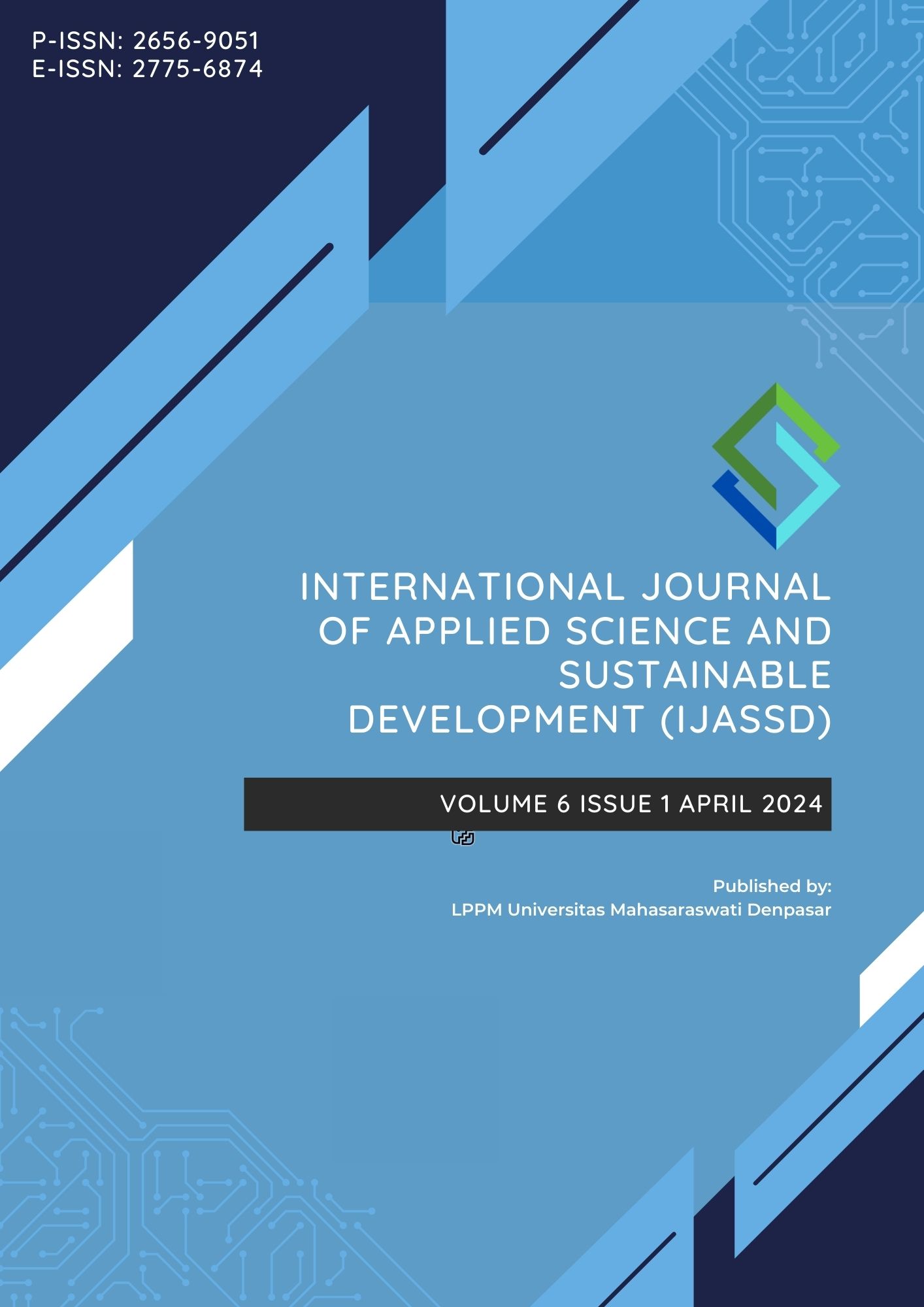Curriculum Development For Children With Adhd Reviewed From Learning Innovation
DOI:
https://doi.org/10.36733/ijassd.v6i1.9418Keywords:
development, children, ADHDAbstract
Attention Deficit Hyperactivity Disorder (ADHD) is a neurobehavioral disorder that commonly occurs in children who often have difficulty paying attention, controlling impulses, and having a high level of activity. Curricula designed specifically for children with ADHD aim to maximize their potential, while accommodating the challenges they face in information processing, attention regulation, and self-regulation. The aim of this research is to provide an overview of curriculum developments for children with ADHD in terms of innovations in learning using research methods, namely literature reviews and research results in the form of various curriculum developments for children with ADHD, especially in the form of innovations in inclusive learning in the application of kinesthetic learning styles, application of models. Project Based Learning and CTL learning with the help of Self Instruction and innovative learning aids in the form of playdough, Montessori teaching aids and play equipment with QR codes.
Downloads
References
Fathoni, M., & Bakhtiar, A. M. (2023). The Influence of Kinesthetic Learning Style on Children with Special Needs ADHD in Elementary School. Pendas: Scientific Journal of Basic Education, 08(2), 1679–1688. https://doi.org/10.23969/jp.v8i2.9828
Febriyana, N. (2024). Early Detection of Attention Deficit Hyperactivity Disorder (ADHD) in Children. In VIOLENCE AGAINST CHILDREN IN THE ERA OF THE COVID-19 PANDEMIC. Airlangga University Press.
Ismah, M., & Anshori, I. (2024). Implementation of PAI Learning Remodeling in Children with Attention Deficit and Hyperactivity Disorders at Muhammadiyah Elementary School. Batanghari University Jambi Scientific Journal, 24(1), 415–418. https://doi.org/10.33087/jiubj.v24i1.4303
Noenta, F. S. R., Trisnani, R. P., & Suharni. (2022). Playdough Play Therapy to Improve Concentration in ADHD Children. National Seminar …, 1, 679–686. http://prosiding.unipma.ac.id/index.php/SENASSDRA/article/view/2791
Nugroho, A., & Mareza, L. (2016). LEARNING MODELS AND STRATEGIES FOR CHILDREN WITH SPECIAL NEEDS IN INCLUSION EDUCATION SETTINGS. Journal of Special Policy Education, 2(2), 145–156.
Nuryati, N. (2022). Education for children with special needs. Unisa press.
Rosyad, A., & Tarihoran, N. (2022). Educational Service Model for Children with Special Needs Who Experience Physical Disabilities. In Journal of Innovation Research and Knowledge (Vol. 2, Issue 3).
Safrizal, Tanti, L., Adhar, D., Riza, B. S., & Iriani, J. (2022). Application of the Certainty Factor Method in Detecting ADHD (Attention Deficit Hyperactivity Disorder) in Children. Kaputama Information Systems Journal (JSIK), 6(2), 363–372.
Sholikhah, A., Muhaimin, M., Rahma, H., Al Anan, M. Y., & Inaya, V. R. (2023). Handling Hyperactive Students in Elementary Schools through the Contextual Teaching Learning (CTL) Model Assisted by the Self Instruction Method. Dawuh Guru: MI/SD Education Journal, 3(2), 169–180. https://doi.org/10.35878/guru.v3i2.811
Subandi, A., & Rusana. (2014). PARENTS' EXPERIENCE IN PARENTING CHILDREN WITH ATTENTION ABSTRACT Attention Deficit Hyperactive Disorders (ADHD) or also known as hyperactivity is the most common neurobehavioral disorder that occurs in childhood. this condition. Al-Irsyad Health Journal (JKA), IN(1), 50–60.
Suryadi, I. (2023). The Impact of Inclusive Education on the Participation and Achievement of Students with Special Needs. West Science Education Journal, 01(08), 517–527.
Susiaty, U. D., Firdaus, M., & Andriati, N. (2021). Development of Positive Negative Board Props Based on the Montessori Method for Students with ADHD. Mosharafa: Journal of Mathematics Education, 10(1), 73–84. https://doi.org/10.31980/mosharafa.v10i1.870
Yanthi, L. E. (2021). Application of the Qr Code Game Method to Increase the Attention Focus of Students with ADHD. Journal of Education and Special Education Teachers, 4(2), 271–284. https://doi.org/10.47239/jgdd.v4i2.298




